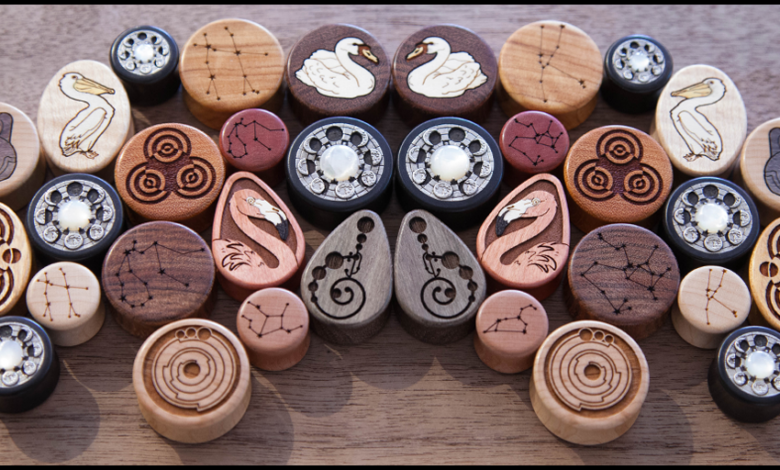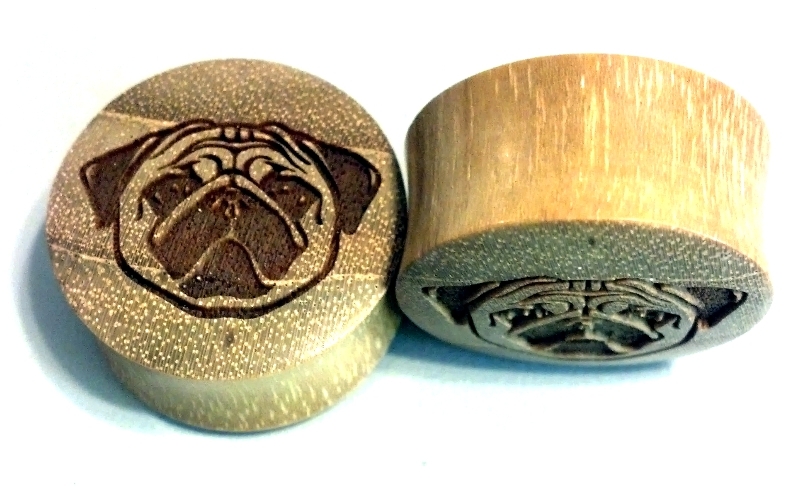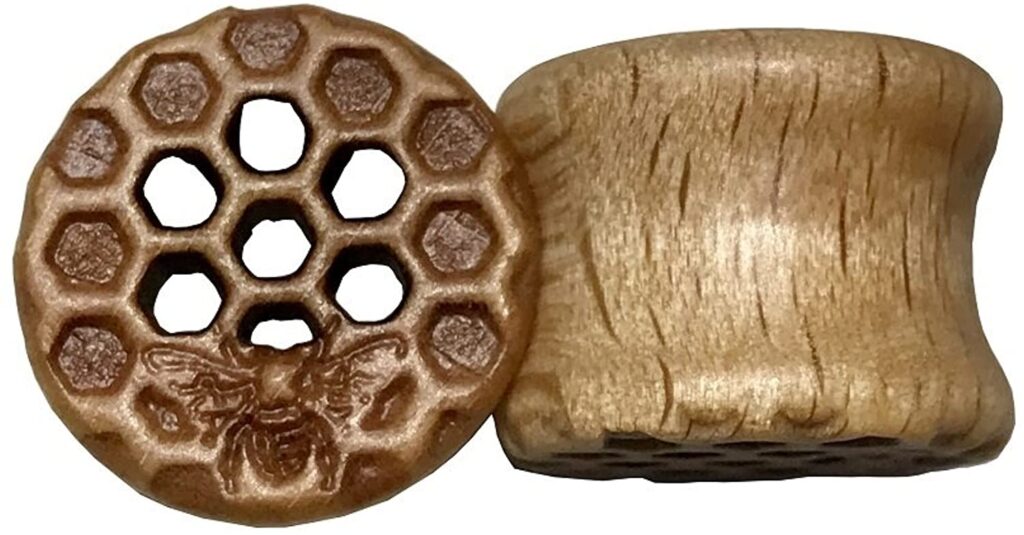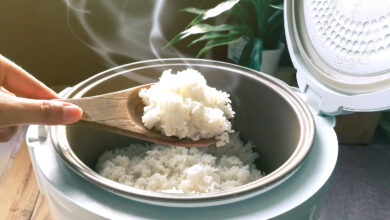Are Organic Plugs Safe?

If you have been carefully stretching your lobes for a while, you might be excitedly looking at the wide range of available plugs once your ear has healed. There are several different materials available for your tunnels and plugs, and you might be considering horn, wood, bone, or stone plugs rather than steel or acrylic. You might be wondering, are organic plugs safe? When can I use organic plugs? Or maybe if there are benefits of wearing organic plugs.
What Are Organic Plugs?
Organic plugs and tunnels are made from naturally occurring materials. Organic plugs usually refer to material that was once living. However, you can add stone into that category, while not once living, they are a naturally occurring product.
You’ll typically hear about plugs that are wood, horn, bone, or stone. They often have intricate silver inlays or have hand-carved designs on them. These extra details make them unique and eyecatching.
Acrylic, silicone, and metal plugs are in the non-organic plug category – although they can be crafted to mimic the look of some organic materials. Metal plugs and tunnels are generally the safest to use on a piercing that is still healing. Visit Customplugs to see more about plugs.
Are There Benefits To Wearing Organic Plugs?

Most plugs and tunnels have several benefits to wearing them.
- Acrylic is budget-friendly and has a vast variety of styles.
- Metal plugs, tunnels, and tapers are great to use for a piercing that is currently healing.
- Silicone is a soft plug option that many find comfortable to sleep in.
But horn, wood, bone, and stone plugs have a range of benefits for the wearer.
- Many people have an allergy or are sensitive to some steel due to the nickel content. Horn, wood, bone, and stone don’t irritate the skin.
- Organic plugs are typically lightweight – even with intricate designs.
- They are usually carved and detailed by hand, giving them something special
- Organic plugs can help reduce the odors associated with a stretched lobe.
- In general, organic plugs are safe to wear for hospital appointments, some medical procedures, and x-rays.
Can You Clean Organic Plugs?
You might think that organic plugs are challenging to take care of, but they are quite straightforward. Horn, bone, stone, and wood plugs all have a different method to keep them clean. Here are some quick tips for cleaning your organic plugs.
How To Clean Horn Plugs
Cleaning bone plugs and horn plugs are very similar. You can use mild soap and water. As soon as you have finished washing the horn plug, dry it. If your horn plug has any silver inlays, polish these with a silver cloth. You can polish your horn plug with some jojoba oil – this makes it easier to slide back in. Never soak your horn plug, this will make it brittle.
Both bone and horn may yellow over time.
How To Clean Stone Plugs
Stone plugs are incredibly easy to look after, even as in-ear weights. As they are water-resistant, you can rinse with mild soap and water, then dry.
How To Clean Bone Plugs
It is normal for bone plugs to have a slightly yellow tinge over time; this is nothing to worry about. Do not try to bleach or soak your bone plug. This will cause damage and may turn it translucent. You can clean a bone plug with mild soap and water. Dry it immediately, and polish with jojoba oil.
How To Clean Wooden Plugs

Wood plugs are prone to get dried out through improper care. Once a week, you should clean the plug. Clean them gently with a damp cloth. Dry thoroughly, and then massage from jojoba oil on to the wood. The wood will look darker, with more of a shine straight away. With proper care, the wood will become darker over time too. It is essential you don’t soak your wooden plugs as they can swell and split.
Organic plugs shouldn’t be left by radiators or in direct sunlight, as this will damage them.
Can I Wear An Organic Plug on a Fresh Stretch?
No. You shouldn’t wear an organic plug, tunnel, or ear weight on an ear that is healing. Your earlobe will take six or more weeks to heal between stretches, and after this time, you will be able to wear an organic plug. Horn, stone, bone, and wood are all porous materials and can harbor bacteria, making them unsuitable for usage on healing tissue.
How Do Organic Plugs Reduce Odor?
The same reason you shouldn’t wear organic plugs on a healing piercing is the same reason you will get less ‘funk.’ The porous nature of these plugs means that they soak up some of what your ear produces. Not only that, but they allow your ear to breathe, unlike silicone and acrylic—this breathability avoids sweaty build-up. You do still need to clean them regularly.
Are Organic Plugs Safe?

Bone, horn, wood, and stone organic plugs are safe, provided you stick to a few basic guidelines.
You should make sure that you wash and oil your bone, horn, wood, or stone plugs at least once a week. This is not only good for your plug, but it is good for your ear lobe too. You can incorporate the cleaning of your plug with your regular ear massage routine.
The oils aren’t required for a stone plug.
Use the same oil to massage your plug as you use for your ear massage routine. Emu oil, jojoba oil or bio-oil are suitable for your skin and for your organic plug.
Organic plugs have one of the most significant benefits when it comes to wearing plugs. Horn, wood, bone, and stone are non-irritating and don’t cause sensitivity over time or allergic reactions. They are gentle on the ear lobes, too, so are high on the biocompatibility scale.
Wood plugs, bone plugs, horn plugs, and stone plugs offer a beautiful and organic alternative to the acrylic, steel, and silicone plugs. Organic plugs offer a great alternative to the human-made material plugs without compromising on style and safety.



